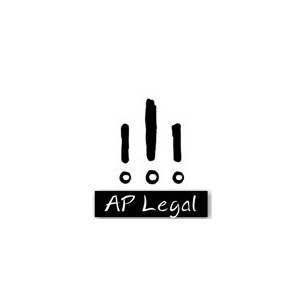Best Oil, Gas & Energy Lawyers in Suva
Share your needs with us, get contacted by law firms.
Free. Takes 2 min.
List of the best lawyers in Suva, Fiji
About Oil, Gas & Energy Law in Suva, Fiji
Whilst Fiji is not a significant producer of natural gas or oil, its strategic location and development make it a critical player in the energy sector. The Oil, Gas, and Energy Law (OGEL) in Suva, Fiji, is a comprehensive legal domain that governs the exploration, extraction, distribution, and use of these resources. This legal field also covers renewable energy sources development, advocating for a sustainable and eco-friendly approach to energy production and distribution.
Why You May Need a Lawyer
If you are engaged in any industry related to oil, gas, or energy production and distribution in Suva, it's likely you may need a lawyer. Legal advice is crucial during any contractual agreements, compliance with local and national regulations, land rights disputes, environmental concerns, and negotiation or dispute resolution with other parties. Lawyers specializing in this field can ensure that your business operates within the legal framework and mitigates potential risks.
Local Laws Overview
Fijian laws surrounding oil, gas, and energy are primarily concerned with environmental protection, public safety, and encouraging clean energy. Some key aspects include licensing for exploration and extraction, environmental impact assessments, rights to access land for resource extraction, adherence to safety and health regulations, and strict sanctions for non-compliance. Fiji is also signatory to various international agreements focused on mitigating climate change and encourages renewable energy developments.
Frequently Asked Questions
What permits do I need to explore or extract oil or gas in Suva, Fiji?
To carry out any exploration or extraction activities for oil or gas in Suva, Fiji, you must seek relevant permits and licenses from the Department of Mineral Resources. Environmental impact assessment may also be required.
What regulations govern the use of renewable energy in Fiji?
In Fiji, the regulation of renewable energy sources is covered by the Fiji Electricity Act, the National Energy Policy, and the Environment Management Act. Coordinated efforts are in place to encourage and facilitate renewable energy projects and the National Green Growth Framework also provides strategic guidance.
Can I generate and sell power back to the grid in Fiji?
Yes, through the Independent Power Producers policy, private entities can generate and sell electricity power back to the national grid. The Energy Regulation Authority is responsible for issuing relevant licenses and overseeing these arrangements.
Do local communities have rights to oil or gas discovered on their land?
Yes, indigenous and local communities in Fiji have certain rights concerning natural resources found on their land. Substantial consultation and agreement is often required to extract these resources, and may also involve compensation.
What penalties exist for violations of oil, gas & energy law in Suva, Fiji?
Non-compliance with Fiji's laws covering oil, gas, and energy sectors could result in significant penalties, including hefty fines, revocation of licenses, and in severe cases, custodial sentences.
Additional Resources
You can find further information and assistance from the following authorities: the Ministry of Lands and Mineral Resources, the Department of Energy Fiji, the Fiji Electricity Authority, and the Environmental Management Authority.
Next Steps
If you require legal advice or assistance in matters related to the oil, gas, and energy sector in Suva, Fiji, you should consult a lawyer specializing in this field. It's recommended to prepare all relevant documents and information beforehand to facilitate a smooth consultation process.
Lawzana helps you find the best lawyers and law firms in Suva through a curated and pre-screened list of qualified legal professionals. Our platform offers rankings and detailed profiles of attorneys and law firms, allowing you to compare based on practice areas, including Oil, Gas & Energy, experience, and client feedback.
Each profile includes a description of the firm's areas of practice, client reviews, team members and partners, year of establishment, spoken languages, office locations, contact information, social media presence, and any published articles or resources. Most firms on our platform speak English and are experienced in both local and international legal matters.
Get a quote from top-rated law firms in Suva, Fiji — quickly, securely, and without unnecessary hassle.
Disclaimer:
The information provided on this page is for general informational purposes only and does not constitute legal advice. While we strive to ensure the accuracy and relevance of the content, legal information may change over time, and interpretations of the law can vary. You should always consult with a qualified legal professional for advice specific to your situation.
We disclaim all liability for actions taken or not taken based on the content of this page. If you believe any information is incorrect or outdated, please contact us, and we will review and update it where appropriate.
















